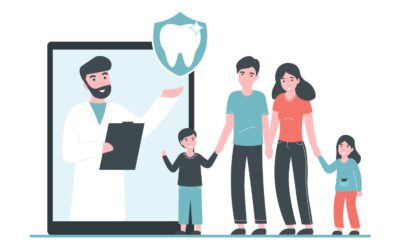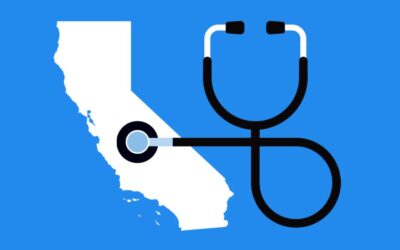
Artificial Intelligence: The Future of Healthcare
Welcome to our latest blog post on a subject that’s revolutionizing the healthcare industry: Artificial Intelligence (AI). In the coming sections, we will delve deep into how AI technologies are not just a part of science fiction but are increasingly becoming an integral component of our healthcare ecosystem. We’ll explore the types of AI technologies being used, their various applications in medical settings, and the transformative potential they hold. Moreover, we will examine both the advantages and ethical challenges that AI brings to the healthcare landscape.
The Rise of AI in Healthcare
A Historical Context of AI in Healthcare
The journey of AI in healthcare has been both groundbreaking and transformative, rooted in decades of research and innovation. The concept of using computers to simulate human intelligence dates back to the mid-20th century, but it wasn’t until the 21st century that we began to see practical applications of AI in healthcare. Early initiatives were mainly focused on data management and basic diagnostic algorithms. Over time, however, the technology has evolved to perform complex tasks ranging from analyzing medical images to aiding in robotic surgery.
In the last decade, the advent of machine learning techniques, cloud computing, and big data analytics have propelled AI applications in healthcare to new heights. Innovations like IBM’s Watson have shown the capabilities of AI in diagnosing diseases and suggesting treatment options, marking a new era of intelligent healthcare systems.
Current Status and Growing Importance
Today, AI has moved from experimental stages to actual clinical settings. Leading healthcare institutions are integrating AI-powered solutions to improve diagnostics, treatment planning, and patient management. For example, AI algorithms are currently being used to detect anomalies in X-rays, MRIs, and CT scans with higher accuracy than traditional methods, leading to earlier and more effective interventions. In pharmaceuticals, AI is speeding up the drug discovery process, providing hope for treatments to various ailments that have been difficult to address through conventional methods.
The growing importance of AI in healthcare can be gauged not just by its technological advancements but also by the significant investments being poured into it. According to a report, the AI healthcare market was valued at $16.6 billion in 2022. It is estimated to reach 173.5 billion by 2029 representing a compound annual growth rate of 40 percent.
This expansion of AI in healthcare signals a transformative shift in how medical care is delivered and managed. As healthcare systems worldwide are grappling with challenges such as rising costs, aging populations, and the ongoing threat of global pandemics, AI serves as a beacon of hope for more efficient, effective, and equitable healthcare solutions.
Understanding the rise and role of AI in healthcare is not just beneficial but essential, given its rapid integration into various aspects of medical care. As AI continues to evolve, it holds the promise of redefining healthcare as we know it, impacting everyone from patients and providers to insurers like Covered California.
Stay tuned as we explore further into the types of AI technologies, their practical applications, and the future they hold for healthcare systems worldwide.

Types of AI Technologies in Healthcare
As the role of AI in healthcare expands, it’s crucial to understand the various types of AI technologies that are driving this revolution. These technologies serve different purposes but often work together to improve outcomes in healthcare settings. Below, we delve into some of the most prominent types of AI technologies being used in healthcare today.
Machine Learning
Machine learning, a subset of AI, enables computers to learn from data and make decisions without being explicitly programmed. In healthcare, machine learning algorithms can analyze vast sets of medical data to identify patterns and make predictions. For instance, machine learning is being used in predictive analytics to forecast patient readmissions or potential outbreaks of infectious diseases. It’s also extensively used in diagnostic imaging, where algorithms can identify abnormalities in X-rays or MRIs, sometimes with greater accuracy than human radiologists.
Natural Language Processing (NLP)
Natural Language Processing (NLP) involves the interaction between computers and human language. In healthcare, NLP is primarily used for analyzing clinical notes, medical records, and other forms of unstructured data. This technology can help clinicians quickly find relevant information, saving time and potentially uncovering overlooked details. NLP is also the technology behind chatbot health assistants, which can help with preliminary diagnoses and guide patients through administrative tasks, like scheduling appointments.
Robotics
Robotics in healthcare goes beyond the realms of science fiction and is already being applied in various capacities. Surgical robots, guided by human surgeons, can perform intricate procedures with more precision and less invasiveness than traditional methods. Additionally, robots are being used for tasks like disinfecting hospital rooms, delivering medications, and even assisting in patient care, which helps to minimize human error and increase efficiency.
Data Analytics
Data analytics involves inspecting, cleaning, and modeling data to uncover useful information and support decision-making. In healthcare, data analytics is used to analyze trends, track the efficacy of treatments, and predict patient outcomes. With the advent of wearable devices and IoT, real-time data analytics can provide continuous monitoring, enabling proactive interventions and personalized treatment plans.

Applications of AI in Healthcare
The realm of healthcare is vast and complex, presenting numerous challenges that AI technologies are increasingly equipped to address. The transformative power of AI is being felt across multiple domains within healthcare, making tasks more efficient and often more accurate than traditional methods. In this section, we’ll examine some of the most impactful applications of AI in healthcare, from diagnostic imaging to virtual health assistants.
Diagnostic Imaging
One of the most promising applications of AI in healthcare is in the field of diagnostic imaging. Machine learning algorithms can analyze images such as X-rays, MRIs, and CT scans to identify abnormalities or patterns that could indicate a medical condition. The advantage here is twofold: not only can AI perform these tasks more quickly than a human, but it can also often do so with higher accuracy. This leads to faster diagnoses, quicker treatment plans, and ultimately, better patient outcomes.
Drug Discovery
The traditional process of drug discovery is both time-consuming and expensive. AI has the potential to accelerate this process dramatically. By analyzing complex biochemical interactions, machine learning algorithms can identify potential drug candidates much more quickly than traditional methods. Some estimates suggest that AI could reduce the time needed for drug discovery from years to months, representing a significant breakthrough in the race to treat various diseases.
Personalized Medicine
In an era where personalized medicine is becoming the gold standard of care, AI plays a crucial role in tailoring treatment plans to individual patients. By analyzing a patient’s genetic makeup, lifestyle factors, and medical history, AI can help clinicians determine the most effective treatment strategy for that individual, minimizing the risk of adverse effects and maximizing the likelihood of a successful outcome.
Remote Monitoring
The growing field of remote patient monitoring is another area where AI is making significant inroads. Wearable devices equipped with AI algorithms can monitor vital signs and other health metrics in real-time, alerting healthcare providers and patients to any concerning changes. This enables timely interventions and reduces the need for frequent in-person check-ups, making healthcare more accessible and less burdensome.
Virtual Health Assistants
Virtual health assistants, powered by natural language processing, are becoming increasingly popular for handling administrative tasks like scheduling appointments, sending medication reminders, and providing preliminary medical advice. They offer a convenient, 24/7 point of contact for patients, helping to improve engagement and adherence to treatment plans.

Benefits of AI in Healthcare: A Game-Changer for Modern Medicine
Artificial Intelligence is not just another technological fad; it’s a paradigm shift that is substantially influencing various sectors, and healthcare is no exception. While the applications of AI in healthcare are numerous, it’s crucial to understand the tangible benefits that AI offers. From streamlining operations to providing personalized care, AI holds the potential to revolutionize the healthcare industry in meaningful ways. Let’s explore some of these benefits.
Increased Efficiency
Healthcare systems worldwide are under immense pressure due to growing patient numbers, aging populations, and rising healthcare costs. AI can be a powerful tool for increasing efficiency within this framework. For instance, machine learning algorithms can sift through electronic health records in a fraction of the time it would take a human, enabling faster and more informed decision-making. Similarly, virtual health assistants can manage administrative tasks, freeing up healthcare professionals to focus on patient care.
Better Accuracy
In the medical field, the cost of an incorrect diagnosis or treatment can be extremely high—both in terms of patient outcomes and financial cost. AI’s ability to analyze vast amounts of data and recognize patterns that might be missed by humans can lead to more accurate diagnoses and treatment plans. Whether it’s interpreting medical imaging or predicting patient readmissions, the accuracy provided by AI can have life-saving implications.
Cost-Effectiveness
One of the long-term benefits of integrating AI into healthcare systems is the potential for cost reduction. While the initial investment in AI technology can be high, the efficiencies it brings can result in significant cost savings. For example, AI-driven diagnostic tools can reduce the need for unnecessary tests and procedures, thus saving both time and money. Additionally, AI’s ability to streamline administrative processes can cut overhead costs, making healthcare more affordable for both providers and patients.
Personalized Care
The idea of personalized medicine has been around for a while, but it’s AI that is making this a practical reality. Through the analysis of genetic data, lifestyle factors, and medical history, AI can help clinicians formulate treatment plans tailored to the individual needs of each patient. This personalization can lead to more effective treatments with fewer side effects, enhancing the patient’s quality of life.

Challenges and Ethical Concerns: Navigating the Complex Landscape of AI in Healthcare
While the potential benefits of AI in healthcare are undoubtedly exciting, it’s essential to approach this technological frontier with a balanced perspective. The implementation of AI in healthcare comes with its own set of challenges and ethical considerations that need to be addressed to ensure responsible and equitable use. In this section, we will discuss some of the most pressing issues, including data privacy, equity in healthcare, and regulatory hurdles.
Data Privacy
The use of AI in healthcare invariably involves the collection and analysis of vast amounts of sensitive personal data. This raises significant concerns about data privacy and security. How is this data stored, who has access to it, and how is it used? Unauthorized access to health data could have severe repercussions, from identity theft to the misuse of sensitive health information. Safeguarding this data is not just a technological challenge but also an ethical imperative, requiring robust encryption and strict access controls.
Equity in Healthcare
Another ethical concern surrounding the implementation of AI in healthcare is the issue of equity. There’s a risk that AI technologies could inadvertently exacerbate existing healthcare disparities, particularly if they are designed and trained using data that lacks diversity. For example, machine learning algorithms that are trained predominantly on data from specific demographic groups may not perform as well for individuals outside those groups. Ensuring that AI tools are equitable and do not perpetuate existing healthcare inequalities is a complex but essential task.
Regulatory Hurdles
The fast-paced development of AI technologies often outstrips the pace of regulatory frameworks. Many existing healthcare regulations were not designed with AI in mind, creating a challenging environment for implementing new technologies responsibly. Navigating these regulatory hurdles involves addressing questions around the validation and certification of AI algorithms, ensuring they meet established standards for safety and efficacy. Regulatory compliance is not merely a hurdle to overcome but an essential step in ensuring that AI technologies are reliable and beneficial for all.

Future Prospects: The Expanding Horizons of AI in Healthcare
As we navigate the evolving landscape of healthcare, it’s impossible to overlook the transformative potential that AI brings to the table. While the present-day applications are indeed groundbreaking, they are merely the tip of the iceberg. The future holds even more promise, teeming with possibilities that could reshape the healthcare sector in ways we can only begin to imagine. In this section, we will explore some future prospects of how AI might evolve in healthcare and what technological innovations lie on the horizon.
How AI Might Evolve in the Healthcare Sector
The AI algorithms of today are bound to become more sophisticated, accurate, and adaptable as technology progresses. With advances in machine learning techniques and an exponential increase in computing power, we can expect AI to take on more complex tasks in healthcare. One area of interest is the fusion of AI with other emerging technologies like the Internet of Things (IoT) and blockchain. For example, IoT devices could capture real-time health data, which AI algorithms could analyze for instantaneous healthcare decisions, all securely managed and recorded via blockchain technology.
Furthermore, the rise of quantum computing could usher in a new era of AI capabilities. With the power to process complex calculations at speeds unimaginable today, quantum computing could make it feasible to analyze every possible variable in treatment planning, from genetic factors to lifestyle choices, creating truly personalized healthcare pathways.
Technological Innovations on the Horizon
On the horizon are technologies that could revolutionize healthcare diagnostics and treatment. Imagine nanobots guided by AI algorithms that can deliver targeted drug therapies to individual cells, minimizing side effects and maximizing treatment efficacy. Another area ripe for innovation is mental health care, where AI could provide real-time monitoring and support, perhaps in the form of advanced virtual therapists trained in various psychotherapeutic techniques.
Moreover, the development of Brain-Computer Interfaces (BCIs) integrated with AI could provide groundbreaking solutions for patients with neurological disorders. These BCIs could translate neural activity into commands, allowing people with paralysis or severe motor impairments to control prosthetic devices using their thoughts.
Navigating the Future of AI in Healthcare
The landscape of healthcare is undergoing a seismic shift, driven by the rapid advancements in Artificial Intelligence. From its historical roots to its current applications in diagnostic imaging, drug discovery, and even insurance models like Covered California, AI is setting the stage for more efficient, accurate, and personalized care. However, this transformative journey is not without its challenges, including data privacy, equity issues, and regulatory hurdles that need to be thoughtfully addressed.
As we look toward the future, the role of AI in healthcare is set to expand even further, with promising technological innovations on the horizon. These advancements hold the potential to revolutionize various facets of healthcare, from treatment modalities to patient management and beyond. The challenges are real, but so are the opportunities for groundbreaking change, making it an exciting time to be involved in healthcare.
In summary
AI’s impact on healthcare is both profound and multi-dimensional, demanding our collective attention and thoughtful navigation. Balancing the technological promise with ethical considerations is key as we move forward. The road ahead is complex but holds the promise of a healthcare system that is more efficient, equitable, and personalized than ever before.
This article was written by Mark Svetlik, with the assistance of automation technology. The content has undergone thorough editing and fact-checking to ensure complete accuracy.














































